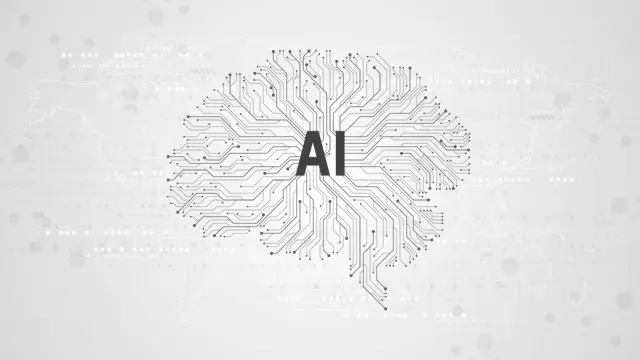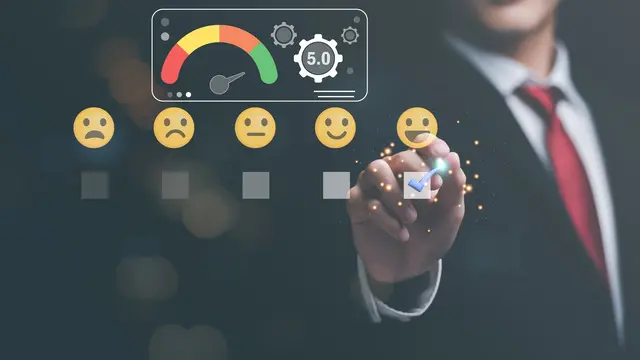Empowering Performance Analytics Automation for Retail Business Success
In the fast-paced retail industry, data-driven decision-making is paramount for staying ahead of the curve. Performance analytics automation plays a pivotal role in this endeavor, enabling retailers to track, analyze, and derive insights from vast amounts of data with unparalleled efficiency and accuracy.
Automation streamlines the entire performance analytics process, from data collection to analysis and reporting. By leveraging the power of Python, AI, and cloud-based solutions, retailers can automate repetitive tasks, freeing up valuable human resources for more strategic initiatives. This not only enhances productivity but also minimizes the risk of errors, ensuring the integrity of the data and the reliability of the insights derived from it.

Python, AI, and Cloud: The Cornerstones of Performance Analytics Automation
Python is a versatile programming language that is ideally suited for developing unattended bots for performance analytics automation. These bots can be programmed to perform a wide range of tasks, such as:
- Extracting data from disparate sources
- Cleaning and preparing data for analysis
- Performing complex calculations and statistical analysis
- Generating reports and visualizations
Attended bots can also benefit from the power of Python. These bots are designed to work in conjunction with human users, providing real-time assistance and automating repetitive tasks. With Python, attended bots can be customized to meet the specific needs of individual users and business processes.
Cloud platforms offer a range of features and capabilities that make them ideal for performance analytics automation. These platforms provide:
- Scalability: Cloud platforms can be scaled up or down to meet the demands of any size business.
- Reliability: Cloud platforms are highly reliable, with built-in redundancy and disaster recovery mechanisms.
- Security: Cloud platforms provide robust security measures to protect sensitive data.
- Integration: Cloud platforms can be easily integrated with other business systems and applications.
AI can play a vital role in improving the accuracy and efficiency of performance analytics automation. AI techniques such as image recognition, natural language processing (NLP), and Generative AI can be used to:
- Identify trends and patterns in data
- Detect anomalies and outliers
- Generate insights and recommendations
- Automate decision-making
By leveraging the power of Python, AI, and cloud platforms, retailers can create a robust and scalable performance analytics automation solution that will provide them with the insights they need to make better decisions and drive business success.

Building the Performance Analytics Automation with Python and Cloud
The performance analytics automation process can be broken down into the following subprocesses:
- Data collection: Data can be collected from a variety of sources, such as sales platforms, financial reports, and customer surveys. Python can be used to develop scripts that automate the process of extracting data from these sources.
- Data preparation: Once the data has been collected, it needs to be cleaned and prepared for analysis. This may involve removing duplicate data, correcting errors, and converting the data into a consistent format. Python provides a range of libraries that can be used for data cleaning and preparation.
- Data analysis: The data is then analyzed to identify trends and patterns. Python provides a number of powerful libraries for data analysis, such as NumPy, Pandas, and Scikit-learn.
- Performance reporting: The final step is to generate performance reports that can be used to inform decision-making. Python can be used to create a variety of reports, including charts, graphs, and tables.
Data security and compliance are of paramount importance in the retail industry. Python provides a number of features that can help to ensure that data is secure and compliant, such as:
- Encryption: Python can be used to encrypt data both at rest and in transit.
- Authentication and authorization: Python can be used to implement authentication and authorization mechanisms to control access to data.
- Logging and auditing: Python can be used to log and audit all access to data.
Compared to no-code RPA/workflow tools, Python offers a number of advantages for performance analytics automation, including:
- Flexibility: Python is a general-purpose programming language that can be used to automate a wide range of tasks.
- Scalability: Python is a scalable language that can be used to automate processes of any size.
- Extensibility: Python has a large ecosystem of libraries and modules that can be used to extend its functionality.
While pre-built RPA tools may be easier to use for simple automation tasks, they often lack the flexibility, scalability, and extensibility needed for complex performance analytics automation.
Algorythum takes a different approach to performance analytics automation because we believe that Python is the best language for the job. Python is a powerful, flexible, and scalable language that can be used to automate a wide range of tasks. We have also developed a number of pre-built components that can be used to accelerate the development of performance analytics automation solutions.
By using Python and our pre-built components, Algorythum can help retailers to build robust and scalable performance analytics automation solutions that will provide them with the insights they need to make better decisions and drive business success.

The Future of Performance Analytics Automation
The future of performance analytics automation is bright. As new technologies emerge, we can expect to see even more powerful and sophisticated automation solutions.
One area of future growth is the use of artificial intelligence (AI). AI can be used to automate a wider range of tasks, including:
- Identifying trends and patterns in data
- Detecting anomalies and outliers
- Generating insights and recommendations
- Automating decision-making
Another area of future growth is the use of cloud computing. Cloud computing provides a scalable and cost-effective platform for performance analytics automation. Cloud-based solutions can be accessed from anywhere, at any time.
By leveraging the power of AI and cloud computing, we can expect to see performance analytics automation solutions that are even more powerful, scalable, and user-friendly.
Subscribe to our newsletter to stay up-to-date on the latest trends in performance analytics automation.
Contact our team to get a free feasibility and cost-estimate for your custom requirements.

Algorythum – Your Partner in Automations and Beyond
At Algorythum, we specialize in crafting custom RPA solutions with Python, specifically tailored to your industry. We break free from the limitations of off-the-shelf tools, offering:
- A team of Automation & DevSecOps Experts: Deeply experienced in building scalable and efficient automation solutions for various businesses in all industries.
- Reduced Automation Maintenance Costs: Our code is clear, maintainable, and minimizes future upkeep expenses (up to 90% reduction compared to platforms).
- Future-Proof Solutions: You own the code, ensuring flexibility and adaptability as your processes and regulations evolve.









